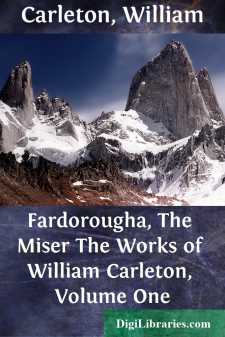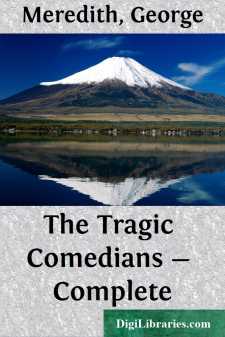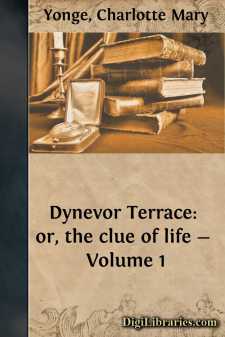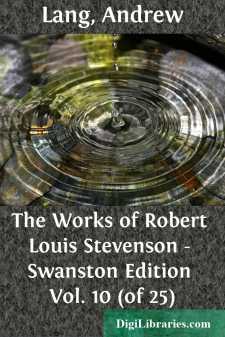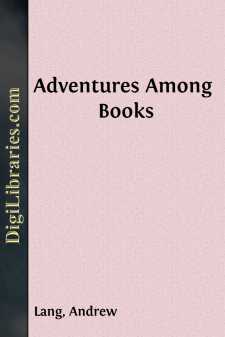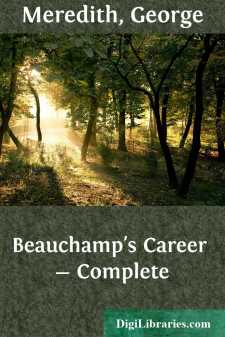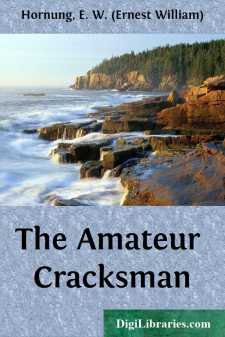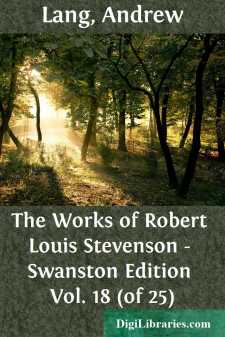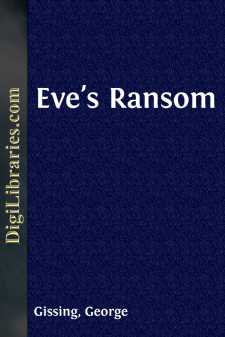Literary Collections
- American 84
- Ancient, Classical & Medieval 14
- Asian 1
- Australian & Oceanian 1
- Canadian 55
- Continental European 121
- English, Irish, Scottish, Welsh
- Essays 160
- General 24
- Letters 46
- Middle Eastern 1
English, Irish, Scottish, Welsh Books
Sort by:
by:
William Carleton
PART I. Fardorougha, the Miser. It was on one of those nights in August, when the moon and stars shine through an atmosphere clear and cloudless, with a mildness of lustre almost continental, that a horseman, advancing at a rapid pace, turned off a remote branch of road up a narrow lane, and, dismounting before a neat whitewashed cottage, gave a quick and impatient knock at the door. Almost instantly,...
more...
by:
George Meredith
CHAPTER I An unresisted lady-killer is probably less aware that he roams the pastures in pursuit of a coquette, than is the diligent Arachne that her web is for the devouring lion. At an early age Clotilde von Rudiger was dissatisfied with her conquests, though they were already numerous in her seventeenth year, for she began precociously, having at her dawn a lively fancy, a womanly person, and...
more...
CHAPTER I. Farewell rewards and fairies,Good housewives now may say,For now foul sluts in dairiesMay fare as well as they. BP. CORBET. An ancient leafless stump of a horse-chesnut stood in the middle of a dusty field, bordered on the south side by a row of houses of some pretension. Against this stump, a pretty delicate fair girl of seventeen, whose short lilac sleeves revealed...
more...
by:
Andrew Lang
CHAPTER I IN WHICH JOHN SOWS THE WIND John Varey Nicholson was stupid; yet stupider men than he are now sprawling in Parliament, and lauding themselves as the authors of their own distinction. He was of a fat habit, even from boyhood, and inclined to a cheerful and cursory reading of the face of life; and possibly this attitude of mind was the original cause of his misfortunes. Beyond this hint...
more...
by:
Andrew Lang
CHAPTER I: ADVENTURES AMONG BOOKS I In an age of reminiscences, is there room for the confessions of a veteran, who remembers a great deal about books and very little about people? I have often wondered that a Biographia Literaria has so seldom been attempted—a biography or autobiography of a man in his relations with other minds. Coleridge, to be sure, gave this name to a work of his, but he...
more...
by:
Dornford Yates
HOW WILL NOGGIN WAS FOOLED, AND BERRY RODE FORTH AGAINST HIS WILL. "Who's going to church?" said Daphne, consulting her wrist-watch. There was a profound silence. My sister turned to Jill. "Are you coming?" she said. "Berry and I are." "I beg your pardon," said her husband. "Of course you're coming," said Daphne. "Not in these trousers. This is the...
more...
by:
George Meredith
CHAPTER I. THE CHAMPION OF HIS COUNTRY When young Nevil Beauchamp was throwing off his midshipman's jacket for a holiday in the garb of peace, we had across Channel a host of dreadful military officers flashing swords at us for some critical observations of ours upon their sovereign, threatening Afric's fires and savagery. The case occurred in old days now and again, sometimes, upon imagined...
more...
THE IDES OF MARCH It was half-past twelve when I returned to the Albany as a last desperate resort. The scene of my disaster was much as I had left it. The baccarat-counters still strewed the table, with the empty glasses and the loaded ash-trays. A window had been opened to let the smoke out, and was letting in the fog instead. Raffles himself had merely discarded his dining jacket for one of his...
more...
by:
Andrew Lang
CHAPTER I AN ISLAND LANDFALL For nearly ten years my health had been declining; and for some while before I set forth upon my voyage, I believed I was come to the afterpiece of life, and had only the nurse and undertaker to expect. It was suggested that I should try the South Seas; and I was not unwilling to visit like a ghost, and be carried like a bale, among scenes that had attracted me in youth and...
more...
by:
George Gissing
CHAPTER I On the station platform at Dudley Port, in the dusk of a February afternoon, half-a-dozen people waited for the train to Birmingham. A south-west wind had loaded the air with moisture, which dripped at moments, thinly and sluggishly, from a featureless sky. The lamps, just lighted, cast upon wet wood and metal a pale yellow shimmer; voices sounded with peculiar clearness; so did the rumble of...
more...


